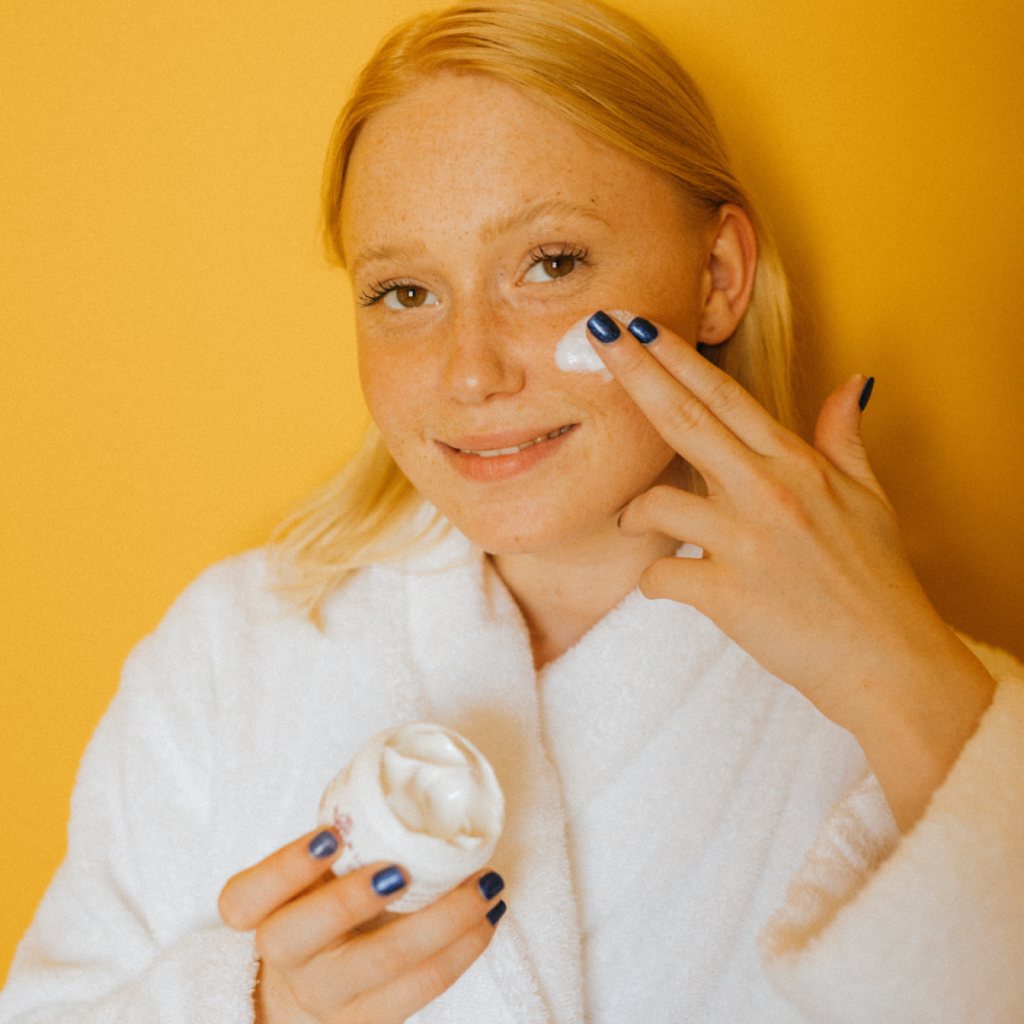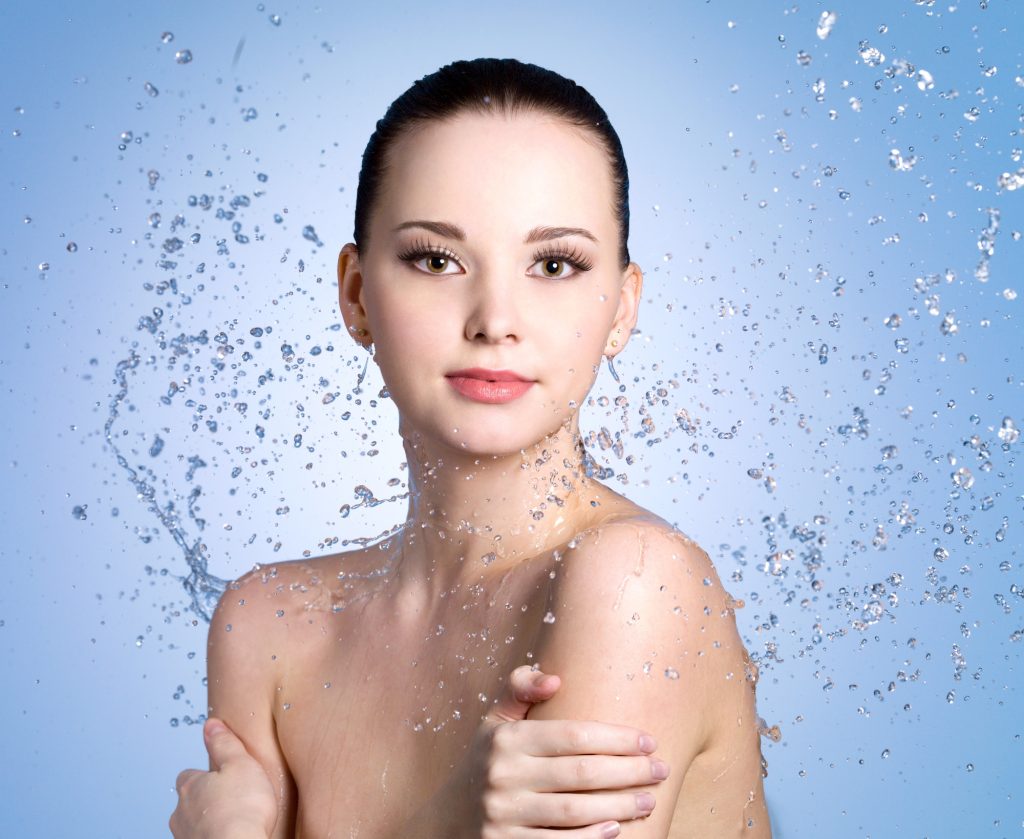Discover the potential benefits of exfoliating for acne and acne scars.
Can Exfoliating Help with Acne or Acne Scars?
Are you tired of battling with pesky acne or the scars they leave behind? Well, fear not, because exfoliation might just be the superhero your skin has been waiting for! Let’s dive deep into the world of exfoliation and discover how it can come to the rescue in the fight against acne and acne scars!

Understanding Acne and Acne Scars
Before we begin our exfoliating adventure, it’s important to understand our foes: acne and acne scars. Strap on your microscope, because we’re about to zoom in on these skin villains!
Acne, a notorious troublemaker, loves to pop up uninvited on our skin. It’s like that unexpected guest at a party who just won’t leave! Acne occurs when our hair follicles get clogged with oil, dead skin cells, and bacteria. It’s not just a single type of acne villain wreaking havoc on our faces, oh no! We can encounter comedonal acne, inflammatory acne, and good old hormonal acne. Talk about a rogue’s gallery!
Comedonal acne, also known as non-inflammatory acne, is characterized by blackheads and whiteheads. These pesky little blemishes form when our hair follicles become clogged with sebum and dead skin cells. They may not be as inflamed as other types of acne, but they can still make our skin look uneven and dull.
Inflammatory acne, on the other hand, is the more aggressive type. It shows up as red, swollen, and sometimes painful pimples. This type of acne occurs when the hair follicles become infected with bacteria, causing an immune response that leads to inflammation. It’s like a battlefield on our skin!
And then there’s hormonal acne, the acne that seems to have a mind of its own. It often appears around the chin, jawline, and neck, and tends to flare up during hormonal fluctuations, such as during puberty, menstrual cycles, or hormonal imbalances. Hormonal acne is like a mischievous trickster, showing up at the most inconvenient times!
Once acne has packed its bags and left, it often leaves behind souvenirs in the form of acne scars. These battle scars come in various forms, such as rolling scars, boxcar scars, ice pick scars, and even charmingly named hypertrophic scars. It’s like acne wants to make sure we never forget its presence! But fear not, dear reader, for exfoliation holds the key to smoothening out these bumpy reminders.
Rolling scars are shallow, wide depressions with gently sloping edges that give the skin a wavy appearance. They are caused by the uneven healing of the skin’s underlying layers after acne inflammation. These scars may not be as deep as other types, but they can still affect the skin’s texture and overall appearance.
Boxcar scars, on the other hand, are characterized by sharp edges and a wider, rectangular shape. They are caused by the destruction of collagen in the skin during the healing process. These scars can make the skin look pitted and uneven, resembling the surface of a crater.
Ice pick scars, as the name suggests, are deep and narrow scars that resemble small puncture marks on the skin. They are caused by the loss of tissue during the inflammatory process of acne. These scars can be quite stubborn and difficult to treat, as they extend deep into the skin’s layers.
Lastly, we have hypertrophic scars, which are raised and thickened scars that occur when the body produces too much collagen during the healing process. These scars can be itchy, uncomfortable, and may take longer to fade compared to other types of acne scars.
So, there you have it! Acne and acne scars are not just simple nuisances, but rather complex skin conditions that require our attention. Understanding the different types of acne and scars can help us navigate the world of skincare more effectively. Now, let’s dive into the world of exfoliation and discover the wonders it holds for our skin!
The Science of Exfoliation
Now that we have a good grasp on our nemeses, let’s unravel the science behind exfoliation. Grab your lab coats and goggles, because things are about to get fascinating!
But before we dive into the nitty-gritty, let’s take a moment to appreciate the wonders of exfoliation. It’s like a gentle ballet for your skin, where the performers are specialized substances that remove dead skin cells, dirt, and debris. It’s a process that helps reveal the vibrant, fresh layers of skin underneath, giving your face that coveted glow! Think of it as a grand unveiling, where dullness and clogged pores step aside to make room for radiance.
What is Exfoliation?
Exfoliation is not just a fancy word for scrubbing your face. It’s a scientific phenomenon that has a profound impact on your skin’s health and appearance. To understand exfoliation, we need to delve into the intricate workings of your skin.
Your skin is a complex organ, constantly renewing itself, like a never-ending metamorphosis. The outermost layer of your skin, called the stratum corneum, consists of stubborn dead skin cells that refuse to leave the party. These cells can build up over time, leading to a dull and lackluster complexion.
This is where exfoliation swoops in to save the day! It acts as a superhero, whisking away these uninvited guests and allowing your skin to breathe and renew itself at an optimal pace. It’s like hitting the reset button on your complexion, giving it a fresh start.
The Process of Skin Renewal
Now that we understand the importance of exfoliation, let’s take a closer look at the fascinating process of skin renewal.
When you exfoliate, you’re not just removing dead skin cells; you’re also stimulating the production of new cells. This process, known as cell turnover, is vital for maintaining healthy and youthful-looking skin.
Cell turnover occurs in the deeper layers of your skin, where new cells are constantly being formed. As these new cells mature, they gradually migrate to the surface, replacing the older, dead skin cells. Exfoliation helps speed up this natural process, ensuring that your skin remains fresh and rejuvenated.
But exfoliation is not a one-size-fits-all approach. Different skin types require different exfoliation methods. For example, individuals with sensitive skin may benefit from gentle exfoliants, while those with oily skin may opt for more intense exfoliation techniques.
So, the next time you exfoliate, remember that you’re not just pampering your skin; you’re also giving it a boost in its natural renewal process. Embrace the science behind exfoliation and let your skin shine!
How Exfoliation Can Help with Acne
Now that we’re armed with exfoliation knowledge, let’s tackle acne head-on and discover how exfoliation can be our trusty sidekick in the battle for clear skin!

Exfoliation and Acne Prevention
By exfoliating regularly, you can help prevent future acne breakouts from gatecrashing your face. Dead skin cells and excess oil are the perfect recipe for clogged pores, and exfoliation swoops in to save the day! It helps keep those pores clean and free from debris, reducing the chances of acne villains setting up camp on your skin.
But how exactly does exfoliation work its magic? When you exfoliate, you’re essentially removing the top layer of dead skin cells from your face. This process not only reveals fresh, healthy skin underneath but also helps to unclog pores. By sloughing away those dead skin cells, you’re preventing them from accumulating and mixing with oil, which can lead to acne.
Additionally, exfoliation promotes cell turnover, which is the natural process of shedding old skin cells and replacing them with new ones. This turnover helps to keep your skin looking radiant and can also prevent the buildup of dead skin cells that can contribute to acne formation.
So, by incorporating exfoliation into your skincare routine, you’re essentially creating a barrier against acne. Think of it as a proactive measure to keep those pesky breakouts at bay!
Exfoliation and Existing Acne
Even if those pesky acne villains have already made themselves at home on your face, fret not! Exfoliation can still work its magic. By gently removing dead skin cells, exfoliation helps unclog those pores and helps existing acne heal faster. It’s like calling in reinforcements to speed up the eviction process!
When you have acne, the skin’s natural shedding process can become disrupted. Dead skin cells can accumulate on the surface, trapping bacteria and causing inflammation. Exfoliation helps to break up this cycle by sloughing away those dead skin cells, allowing the acne-fighting ingredients in your skincare products to penetrate more effectively.
Furthermore, exfoliation can help reduce the appearance of acne scars and hyperpigmentation. By promoting cell turnover, it encourages the growth of fresh skin cells, which can gradually fade the marks left behind by acne.
However, it’s important to note that when dealing with existing acne, gentle exfoliation is key. Harsh scrubbing or using abrasive exfoliants can irritate the skin and worsen inflammation. Opt for gentle exfoliants, such as chemical exfoliators containing ingredients like salicylic acid or glycolic acid, which can effectively unclog pores without causing additional damage.
So, whether you’re looking to prevent future breakouts or combat existing acne, exfoliation is a powerful tool in your skincare arsenal. Embrace the benefits of exfoliation and say goodbye to acne woes!
How Exfoliation Can Help with Acne Scars
Now that we’ve vanquished the acne villains, let’s focus on their battle scars. Don’t let acne scars undermine your self-confidence! Exfoliation is here to lend a helping hand in the journey towards smoother skin!
Exfoliation and Scar Reduction
While exfoliation won’t completely erase your acne scars overnight (sadly, we haven’t discovered a time machine…yet), it can definitely help reduce their appearance over time. By sloughing off the topmost layer of skin, exfoliation encourages cell turnover and stimulates collagen production. These superheroic actions work together to fade scars and reveal smoother skin underneath. Say goodbye to those reminders of past battles!
Types of Exfoliants for Acne Scars
Exfoliants come in various forms, each with its unique superpowers. Chemical exfoliants, such as gentle alpha hydroxy acids (AHAs) or beta hydroxy acids (BHAs), work their magic by dissolving dead skin cells. On the other hand, physical exfoliants, like gentle scrubs or brushes, deliver a satisfying exfoliation experience by physically buffing away dead skin cells. The choice is yours, dear reader, in this world of exfoliation wonders!
Risks and Precautions of Exfoliating
While exfoliation can work wonders for your skin, it’s essential to embark on this journey with caution. Let’s take a moment to explore the risks and precautions associated with exfoliation.
Over-Exfoliation: Risks and Signs
Even superheroes have their weaknesses, and the same goes for exfoliation. Over-exfoliation can lead to skin irritation, redness, dryness, and sensitivity. It’s like pushing your skin’s tolerance to its limits, and nobody wants to see their skin in distress! Keep an eye out for signs like increased sensitivity, a tight feeling, or excessive dryness. When it comes to exfoliation, moderation is key!
How to Safely Exfoliate Your Skin
To unlock the true power of exfoliation while keeping your skin happy and healthy, follow these golden rules. First, choose the right exfoliant for your skin type, avoiding harsh or abrasive products. Next, start slow and gradually increase the frequency of exfoliation as your skin adjusts. Lastly, always moisturize and protect your skin afterward, ensuring it remains hydrated and shielded from the elements. Your skin will thank you later!
So there you have it, brave reader! Exfoliation, with its superpowers of unclogging pores, banishing acne, and reducing scar appearance, can indeed help in the epic battle against acne and acne scars. But remember, always embrace a playful approach to skincare, and be patient while your skin does its wondrous dance of renewal. Together, we can conquer pesky acne and rock flawless skin!





